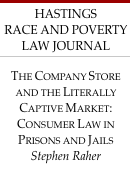Electronic Messaging and Tablets
We think of email and the Internet as tools for staying in touch, but behind bars, they're becoming tools for exploitation. Private companies offer electronic tablets and kiosks to prisons — sometimes for free — and then overcharge incarcerated people and their loved ones to use them.
Worse, these low-quality digital products are becoming an excuse for some prisons and jails to eliminate essential services, like libraries and paralegals, and to charge people by the minute to read books.
The Prison Policy Initiative is bringing these abusive practices to light. We're calling for digital technology to be offered as it was originally designed: to be free and accessible to all. We also published a best practices guide for counties and states considering tablet programs.
See our key research below:
Reports

SMH: The rapid & unregulated growth of e-messaging in prisons
A technology that, until recently, was new in prisons and jails has exploded in popularity in recent years. Our review found that, despite its potential to keep incarcerated people and their families connected, e-messaging has quickly become just another way for companies to profit at their expense.
How to spot the hidden costs in a “no-cost” tablet contract
Our primer on contracts that claim to deliver electronic tablets to incarcerated people at "no cost" to taxpayers. We explain why these tablets are free: By charging incarcerated people too much for basic services, the companies providing the tablets end up making money.
More states are signing harmful "free prison tablet" contracts
Tablet computers are delivering a captive audience to profit-seeking companies, while enabling prisons to cut essential services like law libraries. We discuss which states are signing these risky contracts.
The Wireless Prison: How Colorado's tablet computer program misses opportunities and monetizes the poor
When Colorado became the first state to offer tablet computers to incarcerated people for "free," we took a close look at its tablet program, uncovering hidden fees and shoddy services. The Company Store and the Literally Captive Market: Consumer Law in Prisons and Jails
The Company Store and the Literally Captive Market: Consumer Law in Prisons and Jails"Prison tablets" are creating new challenges for those seeking to protect incarcerated consumers from exploitation. In this law article, Prison Policy Initiative volunteer Stephen Raher suggests legal avenues for protecting consumers in prison.
Correctional tablet and electronic messaging contracts
We've made our collection of electronic messaging and tablet contract documents public. Search them to see what companies are profting in your area.
Selected coverage of our work
- "Free" tablets in prisons are anything but, by The Times West Virginian Editorial Board, October 30, 2019
- "Free" Tablets Are Costing Prison Inmates a Fortune, by Tonya Riley, Mother Jones, October 5, 2018
- Prisons are switching to ebooks--but that's not a good thing, by Hanna Kozlowska, Quartz, September 21, 2018
- Return to Sender: No More Mailing Books to Inmates in Pennsylvania, by Mia Armstrong, Slate, September 19, 2018
- The outrageous scam of "free" tablets for the incarcerated, by Michael Waters, The Outline, August 10, 2018
- Captive Audience: How Companies Make Millions Charging Prisoners to Send an Email, by Victoria Law, Wired, August 3, 2018
- Digital Sales Are Transforming Business Within Prisons, by Mia Armstrong, Slate, July 19, 2018
- US prisons now offer inmates 'electronic messaging,' but it's not really e-mail, by Max Lewontin, The Christian Science Monitor, January 22, 2016




 The Company Store and the Literally Captive Market: Consumer Law in Prisons and Jails
The Company Store and the Literally Captive Market: Consumer Law in Prisons and Jails


